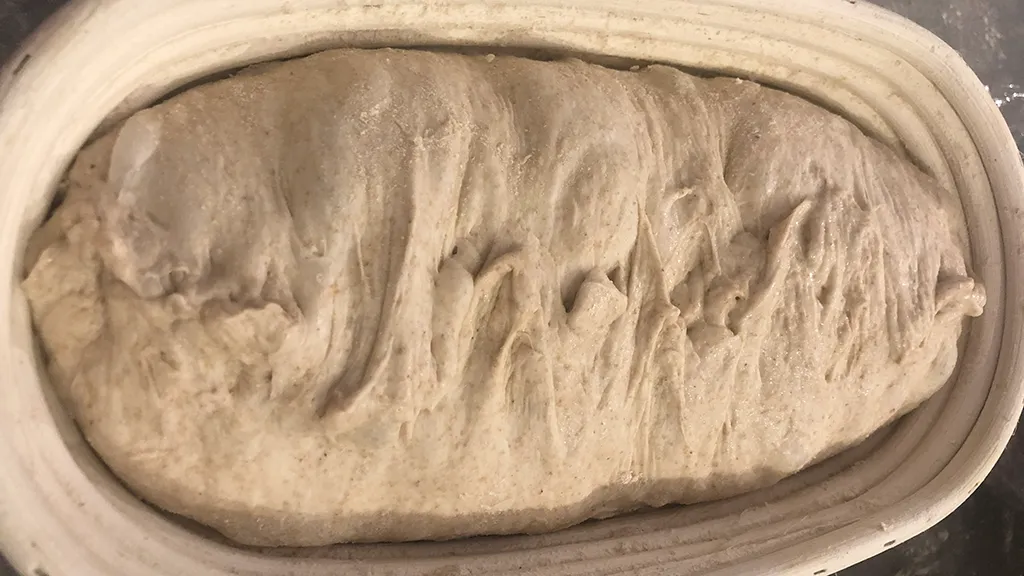
- Leave a review
- Share
- Bookmark
- prev
- next
Categories
Sourdough Term
Retarding - Unlocking Flavor Through Time
Retarding or Cold fermentation is a bread-making technique that allows the dough to ferment at lower temperatures, typically in the refrigerator, for an extended period.
This method offers several benefits that significantly enhance the bread quality.
Enhanced Flavour Development
One of the primary advantages of cold fermentation is the development of flavour. The slower fermentation process allows for extended enzyme activity, breaking starches into sugars and producing more complex flavours. As the dough ferments over an extended period, it can develop a more pronounced sourness, which is especially beneficial for artisan breads and sourdoughs. This method also allows for the production of acetic acid, which contributes to the tangy flavour profile of sourdough bread.
Improved Texture and Crust Quality
Cold fermentation can improve the texture of the finished bread. The slower rise helps strengthen the gluten structure, resulting in a chewier crumb and a more desirable crust. Additionally, breads made with cold-fermented dough often exhibit a more blistered crust, which is visually appealing and adds to the overall eating experience.
Greater Control and Consistency
This fermentation method provides bakers with greater control over the dough-making process. The predictability of rise times and dough behaviour in cold fermentation allows bakers to plan their baking schedules more effectively. Storing your leavened dough in the fridge makes it remarkably forgiving of environmental variables such as temperature and humidity, making it easier to achieve consistent results.
Convenience and Flexibility
Cold fermentation offers convenience for busy bakers. This method provides scheduling flexibility, as bakers can prepare dough in advance and store it in the refrigerator overnight or for up to 48 hours.
Nutritional Benefits
Another lesser-known benefit of cold fermentation is its potential to enhance the nutritional value of the bread. The slower fermentation process can increase the availability of certain nutrients and make the bread easier to digest due to the breakdown of complex carbohydrates.
Summary of Cold Fermentation Benefits
- Enhanced flavour through prolonged enzyme activity and acid production.
- Improved texture and crust quality, resulting in a chewier crumb and appealing crust.
- Greater control over the fermentation process, leading to consistent results.
- Convenience for bakers, allowing for flexible scheduling.
- Nutritional enhancements enable your body to digest the bread and absorb its vital nutrients easily.
These advantages make cold fermentation a preferred method among many artisan bakers looking to elevate their bread-making process.
Cold Fermentation in Sourdough
Sourdough is the most prominent type of bread that benefits from cold fermentation. The slow fermentation process allows for the development of complex flavours and a characteristic sourness due to the production of acetic acid by bacteria. Cold fermentation can enhance the tanginess and improve the crust's blistering, making it visually appealing and texturally satisfying.




Add a review